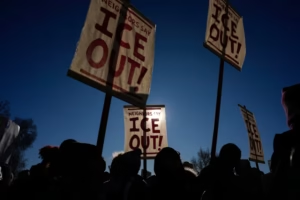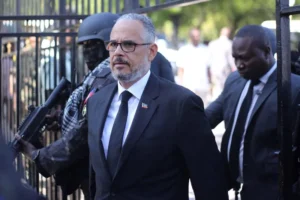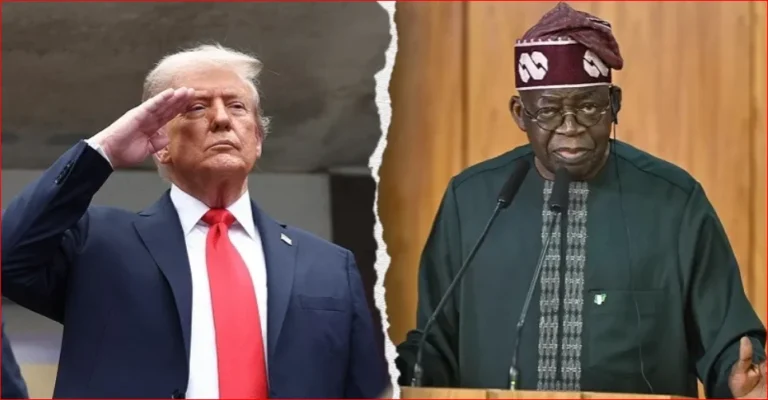The international community is in turmoil following a new threat from US President Donald Trump. He has warned of a possible military operation in Nigeria, accusing the government of failing to stop the killing of Christians. His comments have triggered strong reactions from diplomats and human rights groups worldwide.
In a statement shared on social media, Trump accused Nigerian authorities of ignoring violence against Christians. He said the United States could no longer remain silent while innocent people were being killed in the country. Trump warned that if the Nigerian government failed to act, Washington would immediately suspend all forms of aid to the West African nation.
Trump also said he had instructed the US Department of War to prepare for possible military action. “If we strike, it will be devastating,” he wrote. “They are brutally attacking our beloved Christians, and we will not tolerate it.”
According to Al Jazeera, Trump’s remarks came just one day after he claimed that the existence of Christians in Nigeria was now under threat. He accused Islamic extremists of carrying out mass killings across the country, saying that thousands had already lost their lives in attacks on churches and villages.
The president’s statement has sparked deep concern among international human rights organizations. They warned that such threats could further destabilize Africa’s most populous country and worsen regional insecurity.
Diplomatic circles have also reacted sharply. Many see Trump’s comments as a dangerous escalation that could undermine efforts to resolve Nigeria’s complex internal conflicts through dialogue and humanitarian aid. Analysts said that a unilateral US military intervention in Nigeria could provoke widespread unrest and damage Washington’s relations with African nations.
So far, the Nigerian government has not issued an official response to Trump’s warning. However, diplomatic sources in Abuja said the matter is being “closely monitored.” Nigerian officials reportedly fear that the US statement could affect foreign aid and investment if the situation worsens.
Observers note that religious tension has long been a sensitive issue in Nigeria. The country’s population is almost evenly divided between Christians and Muslims, and clashes between communities have occurred in several regions. Militant groups such as Boko Haram and ISWAP have carried out deadly attacks for years, targeting both Christians and Muslims.
Trump’s remarks come at a time when global attention is focused on political instability across Africa. His statement has reignited debate over the role of the United States in international religious and humanitarian crises. While some of his supporters praised him for defending Christian communities, critics accused him of using religion to justify interventionist policies.
Human rights experts warn that Trump’s comments could encourage violence rather than peace. They argue that accusations of religious persecution must be addressed through diplomatic engagement, not threats of war. International observers also expressed concern that such rhetoric could embolden extremist groups and harm civilians in conflict zones.
In Washington, Trump’s post has sparked political debate. Some lawmakers called for restraint, urging the president to avoid statements that could inflame tensions. Others demanded that the current US administration clarify its stance on military involvement in Nigeria.
Despite the backlash, Trump has not withdrawn his remarks. Instead, he reiterated that the United States “must act decisively” to protect Christians wherever they are under threat. His warning adds to a growing list of international controversies surrounding his statements since leaving office.
For now, the world waits to see how Nigeria and global powers will respond. Many diplomats stress that stability in Africa requires cooperation, not confrontation. As one European analyst noted, “Words from powerful leaders carry weight. When they turn into threats, the consequences can be felt far beyond borders.”







